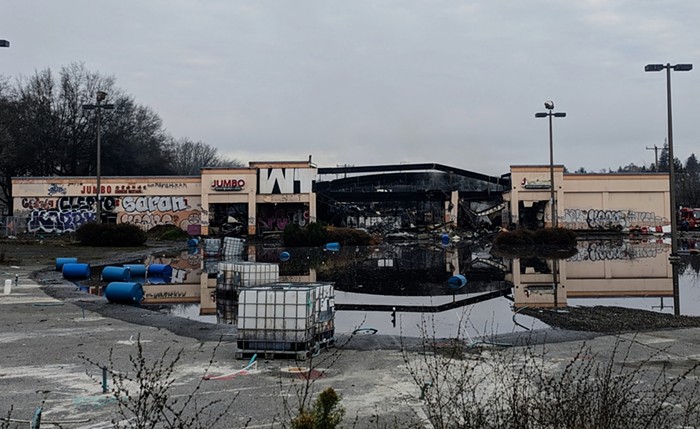
The last nine months have inflicted the greatest economic suffering on working people since the Great Depression. Tens of millions in the US have lost their jobs or income since the start of the pandemic. Nearly one in four households have experienced food insecurity this year. Tens of millions have been unable to pay the rent, and a recent study estimated that 30 to 40 million households could face eviction next year. US Census data revealed that already by the end of October, over half a million renters in Washington state had been forced to accumulate credit card debt or seek short-term loans to meet their basic needs, including rent.
Here in Seattle, I've received hundreds of messages from Seattleites on the brink of homelessness, worried about where their next meal will come from or whether they'll ever be able to return to their jobs after the months of business closures drag on due to COVID. One renter in North Seattle said: "I am disabled & have fallen behind on my rent due to COVID. I would not survive living on the street. That would definitely be my fate if the eviction moratorium were not extended for a long time more."
A single mother of three who is out of work as a waitress said, "Now I am making next to nothing and am making do due to the graciousness of family and friends which cannot go on forever. I and many others need this to be extended."
Another renter in Belltown wrote, "I'm a mom of a two-year-old who was recently laid off again and having trouble paying my rent for the first time this year right now. I'm terrified of being evicted and possibly having to be on the streets with my child."
My office has hosted, alongside Be: Seattle, dozens of renters rights bootcamps, where renters say they face eviction letters or threats despite a moratorium, as corporate landlords eye the December 31 deadline for the moratorium to end.
Big landlords and property management corporations have always gone to court to try to undo Seattle's tenant protections, and when they lose, they try to ignore their legal obligations. With the moratoriums set to expire at the end of the month, they are now trying to roll back or seriously weaken these life-saving protections. Under pressure from them, Democratic Governor Inslee is considering passing a severely watered-down moratorium for next year.
That's why I urge everyone to sign and circulate my Council office's new petition, calling on Mayor Durkan to extend and strengthen the existing eviction moratorium for a minimum of one year. And, I urge you to also sign and circulate the Tenant's Union appeal to Governor Inslee.
We know that renter organizing works. In March, my socialist Council office organized alongside renters' rights activists and progressive union members and quickly gathered more than 9,000 signatures, including 3,400 in the first day alone, on a petition demanding a citywide moratorium on evictions and foreclosures, forcing Mayor Durkan to issue an executive order protecting tenants and struggling small businesses from eviction during COVID.
We won because working people are starting to recognize that big business and the wealthy must pay for the deep crisis in the capitalist system. Working people should not face crushing debt, while property management corporations, large landlords, big banks, and Wall Street make away with massive profits.
The housing affordability crisis in cities across the nation predates the pandemic by many years and has been a direct product of the capitalist economy. Corporate landlords and Wall Street interests dominate the housing market, and have consolidated increasing profits through the increased exploitation of renters. According to Zillow, America's renters paid an unprecedented $4.5 trillion to landlords in the last decade. Wall Street real estate owners spent a shocking $86.2 million this year just to defeat California's Proposition 21, which would have enabled moderate but crucial improvements to the state's rent control laws.
It's not only corporations like Amazon that are making profits through the pandemic. Essex Property Management, a West Coast company with nearly 12,000 apartments in the Seattle area, and which is one of the most-evicting landlords in Seattle/King County according to renters' rights organizations like Be:Seattle, just announced staggering profits of $473 million for the first nine months of 2020. Equity Apartments, which controls more than 9,400 apartments in the Seattle area and nearly 79,000 nationwide, reported nearly $700 million in profits during the same period. The prominent real estate investment website Mashvisor just reported that even during COVID, "Seattle real estate investors are continuing to enjoy a good return on investment on rental properties," and that the housing affordability crisis is good news for rich investors: "Although affordability continues to be an issue for local residents, it does have a positive aspect for Seattle real estate investors. Owning a rental property in Seattle does mean high demand which translates into good occupancy rates and cash flow," the site reported.
Corporate landlords and right-wing politicians in Olympia claim that there are "bad actors" among renters who may be abusing the moratorium, and say that tenants must "prove" their financial hardship to qualify for eviction protection.
Such means-testing would be a blatant attack by some of the wealthiest in our state on the most vulnerable during a period of unprecedented hardship, and would be nothing short of criminal. In fact, it is the exploitative corporate landlords and Wall Street banks who are the "bad actors" in our society. Weakening the moratoriums would lead to a tsunami of evictions and increased homelessness, putting not just renters but entire communities at increased risk of increased COVID spread.
We cannot rely on the Democratic Party to fight to defend, let alone strengthen, the moratorium. Just as in March, at the start of the COVID crisis, whatever we win will be a function of our power as an independent movement. Just this year, we made Seattle the first and only city to win a winter evictions ban. We won the Amazon Tax to fund a big expansion of affordable housing and the Green New Deal during the height of the Black Lives Matter movement this past summer.
We also know that extending the moratorium will not be enough because it merely pushes the renter debt crisis out. We need to fight to cancel rents, mortgages, utility costs, and debt payments for renters, working-class homeowners, struggling small businesses, and small landlords who have lost income due to COVID and the economic recession. My office is proud to be part of the statewide and national #CancelRent and #CancelMortgage movements, alongside grassroots community organizations like Be:Seattle and the Tenants Union.
The question in this housing struggle is clear: Who will pay for the twin crisis of COVID and the capitalist recession—big business or working people? We have to fight to ensure big business pays for the housing debt crisis, not working people who have struggled and suffered during COVID.
Kshama Sawant represents District 3 of the Seattle City Council.


















